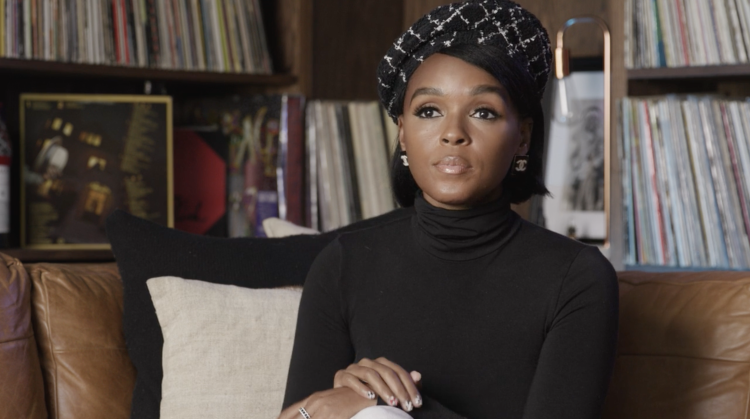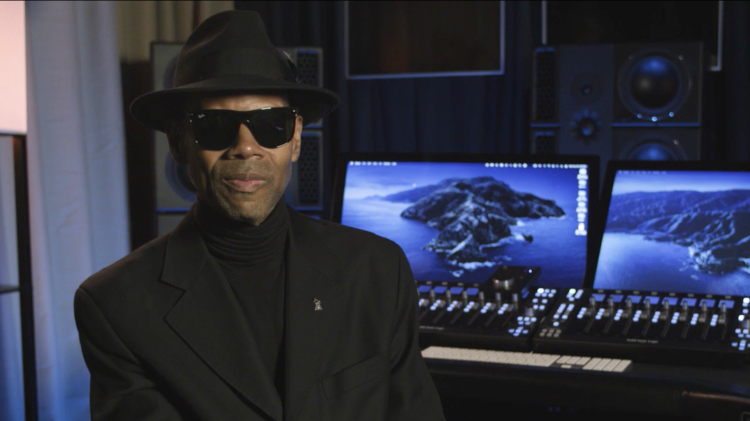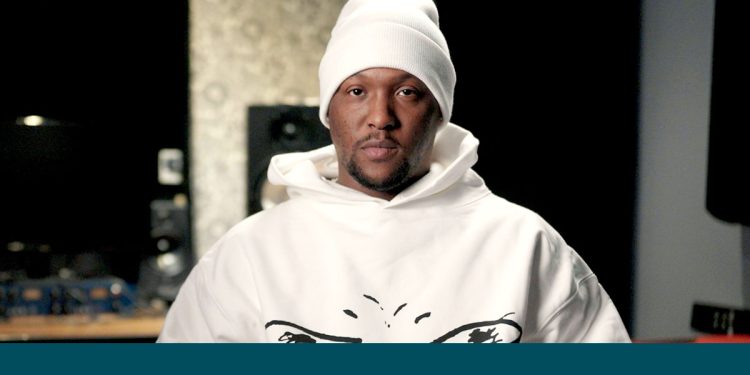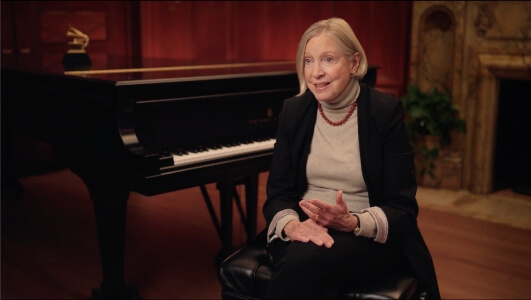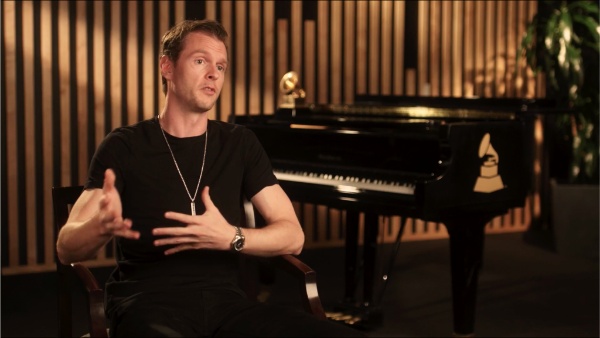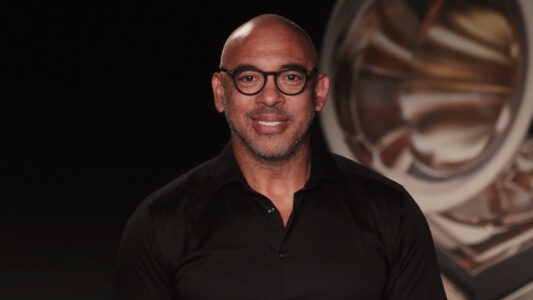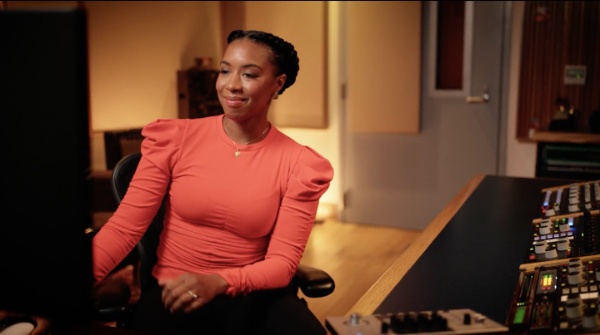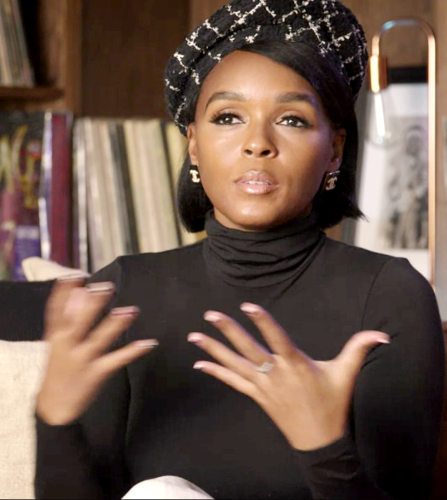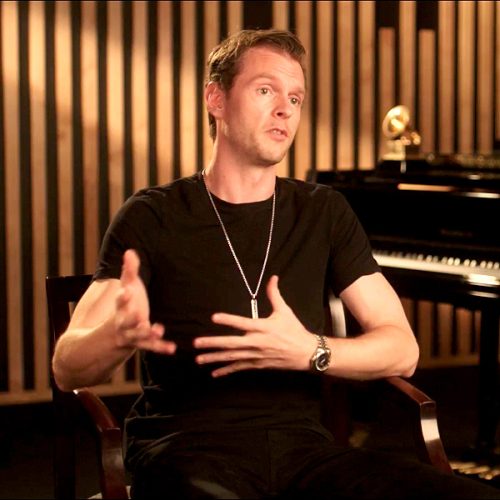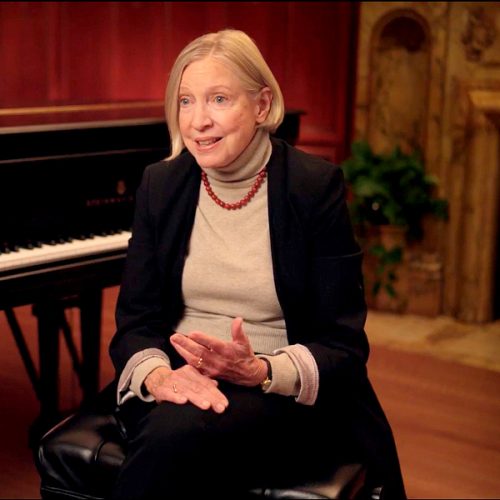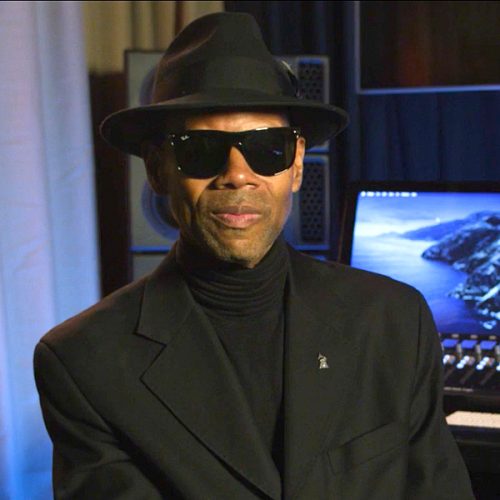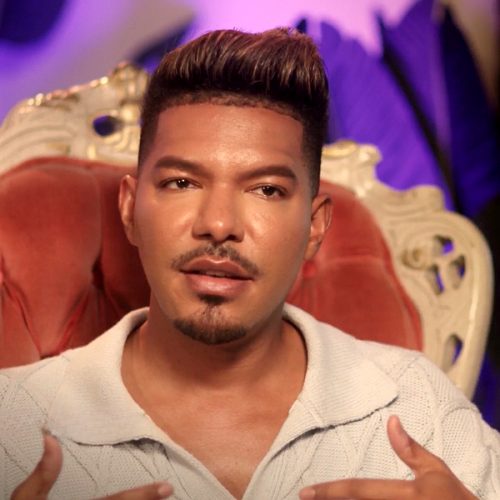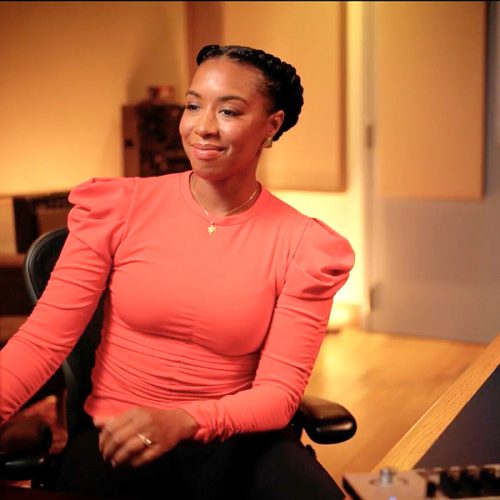Overview
What Does a Music Producer Do? What is a Music Producer?
A.K.A.
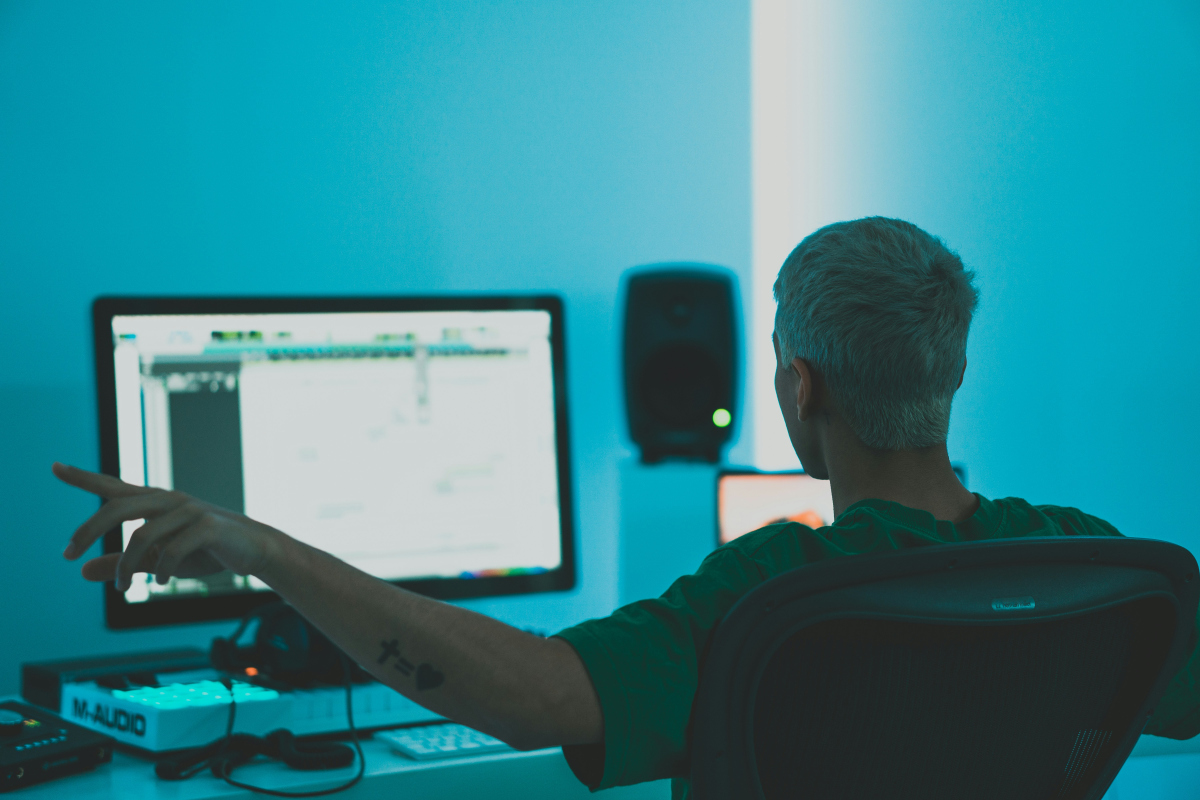
In the world of music, there are countless roles that contribute to the final product we hear on our radios, streaming platforms, or in live performances. One of the most pivotal roles is that of the music producer. But what exactly does a music producer do, and what makes them different from other professionals in the industry?
Discover GRAMMY GO courses exclusively on Coursera
Defining the Role: What Does a Music Producer Do?
The melodic tunes that serenade our ears and the beats that make us move are often the results of collaborative efforts. Central to this musical synergy is the music producer. Often behind the scenes yet integral to a song’s creation, the music producer wears many hats—from a sound engineer to a creative director. Understanding their multifaceted role provides insight into the magic of music creation.
At its core, a music producer’s role is to oversee and guide the recording and production of a track or album. This can involve everything from selecting songs and musicians, working on song arrangements, directing recording sessions, and mixing and mastering tracks. While the artist brings their style and voice, the producer provides the vision and technical expertise to bring that sound to life in the studio.
Producing isn’t just about tweaking sounds; it’s about vision. Producers often help shape the song’s narrative, ensuring the music and lyrics seamlessly intertwine. They guide artists, sometimes challenging them to step out of their comfort zones. From choosing instruments to deciding on the song’s tempo, from layering tracks to the final mix, the producer’s touch is omnipresent. Their role is to ensure the final piece resonates with listeners.
I don’t even know what a traditional producer is or does. I feel like the job is like being a coach, building good work habits and building trust. You want to get to a point where you can say anything and talk about anything. There needs to be a real connection.
Rick Rubin
Iconic Music Producers: Making Hits Across Genres
Throughout the history of music, certain names have become synonymous with iconic sounds and revolutionary tracks. Dr. Dre brought a distinctive West Coast sound to hip-hop. Quincy Jones, with his vast genre-spanning repertoire, gave us classics with legends like Michael Jackson. Max Martin’s pop sensibilities can be heard in tracks of Backstreet Boys, Taylor Swift, and countless others. And Pharrell Williams‘ unique touch is evident in both his solo work and collaborations. These producers not only create music but also shape eras and genres.
Breaking Into the Industry: How to Become a Music Producer
The journey to becoming a music producer is as varied and unique as the music they create. Some producers kickstart their careers as DJs, sound engineers, songwriters, or musicians, while others immerse themselves in apprenticeships, learning directly under seasoned professionals in the industry. While a formal education in music production or sound engineering can lay a solid foundation, the digital age has paved the way for many to harness online courses, tutorials, and software platforms to hone their skills. Regardless of the path taken, the cornerstone of a successful producer lies in their creativity, patience, and a keen ear for music and emerging trends. Additionally, an understanding of technology and strong interpersonal skills are crucial for fruitful collaborations with artists and industry stakeholders.
Rick Rubin: The Genesis of a Production Maestro
Rick Rubin’s journey to becoming a producer is closely tied to the rise of hip-hop in New York City and his genuine passion for the music scene. His key steps include:
- College Radio: Rubin began his foray into music during his college years at New York University. He was a DJ for the college radio station, which allowed him to dive deep into the music of the time.
- Def Jam Recordings: In his dorm room at NYU, he co-founded Def Jam Recordings with Russell Simmons in 1984. This label played an instrumental role in bringing hip-hop to a larger audience.
- Beastie Boys: Rubin’s initial big break as a producer came when he worked with the Beastie Boys on their debut album, “Licensed to Ill,” which became a massive success.
- Diverse Interests: Unlike many producers, Rubin did not pigeonhole himself into one genre. He worked with artists from a variety of music styles, from rap to rock to country. This versatility and his signature minimalist style made him one of the most sought-after producers in the industry.
Pharrell Williams: A Melodic Odyssey from High School to Hits
Pharrell’s path to music production is also deeply rooted in his early interests and collaborations:
- High School and The Neptunes: Pharrell formed a group called The Neptunes with his friend Chad Hugo in high school. They were discovered at a high school talent show by Teddy Riley, whose studio was next to the school. The Neptunes started out producing for Riley before branching out on their own.
- Production Successes: The Neptunes’ distinctive production style, which often fused rock, funk, and hip-hop, caught the ear of many artists. They produced hits for artists like Jay-Z, Britney Spears, and Nelly.
- NERD: Alongside their production work, Pharrell and Hugo, along with their friend Shay Haley, formed NERD, releasing their own music and further establishing Pharrell’s reputation in the industry.
- Solo Career and Continued Production: Pharrell continued to produce hits while also launching a successful solo career. His versatility, similar to Rubin, allowed him to work with a range of artists across genres.
Both Rubin and Pharrell are examples of how passion, early involvement in the music scene, a unique vision, and a bit of luck can lead to significant opportunities in the world of music production.
Earning Potential: Music Producer Salary Insights
According to Payscale, the average salary for a Music Producer in the United States in 2024 is $58,478. The range typically falls between $33,000 to $123,000, depending on various factors including experience, location, and additional skills. Music Producers can also expect to earn bonuses, profit sharing, and commissions, which can range from $122 to $20,000, $1,000 to $16,000, and $3,000 to $10,000 respectively. The total pay, considering all forms of earnings, is estimated to be between $31,000 to $151,000 annually.
$58K
AVG

I never cared about money or fame, and I don’t care now. I follow the groove, and money always follows.
Quincy Jones
Essential Tools: DAWs and Software Pioneering Modern Music Production
In the realm of contemporary music production, the marriage between art and technology is evident. At the heart of this synthesis are Digital Audio Workstations (DAWs), which have revolutionized the way producers create and shape sound. Key DAWs, such as Ableton Live, Pro Tools, FL Studio, Logic Pro X, and Cubase, serve as the backbone of modern production setups.
These software platforms empower producers to sculpt soundscapes, craft intricate beats, mix multiple tracks to perfection, and bring their musical visions to life. Beyond just tools, these DAWs provide an environment where creativity meets technology, enabling the transformation of raw musical ideas into polished tracks ready for the world to hear.
For those aspiring to carve a niche in music production, proficiency in these DAWs is more than just a recommendation; it’s a necessity. Mastering these platforms equips producers with the toolkit to excel in the dynamic world of music creation.
The Evolving Role of the Music Producer
In the early days of recording, the music producer’s role was predominantly technical. Their primary concern was to ensure that recordings were crisp, clear, and well-balanced. They acted as the bridge between the artist’s vision and the tangible recording, focusing on the mechanics of sound capture and refinement. Their contributions, though invaluable, were mostly confined to the shadows of the recording booth.
Fast forward to today, and the landscape has dramatically changed. Producers have transitioned from being mere technical experts to multifaceted juggernauts in the music industry. Modern producers often wear many hats: collaborators, songwriters, sound designers, and sometimes even performers themselves. For instance, artists like Dr. Dre and Pharrell Williams started as producers but soon found themselves not just creating beats but also delivering lyrics and performing on tracks.
This shift can be attributed to various factors, one of the most significant being the democratization of music production through technology. With advanced DAWs and production tools becoming more accessible and affordable, barriers to entry in music production have diminished. This has allowed producers to experiment, innovate, and craft their unique sounds without the constraints of traditional studio setups.
Moreover, the rise of platforms like SoundCloud and YouTube has provided producers with direct channels to showcase their talents and interact with their audience. No longer confined to the background, many producers now enjoy celebrity status, influencing music trends and cultural movements. Metro Boomin, for instance, is not just known for his production skills but is also a recognized name and brand in hip-hop, frequently collaborating with top artists and releasing his own tracks.
The evolution of the music producer’s role is a testament to the ever-changing nature of the music industry. With technology and social media continually reshaping the landscape, producers are not only the architects behind the sound but also influential icons pushing musical boundaries.
Photo by Andreas Forsberg on Unsplash
